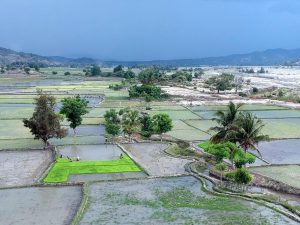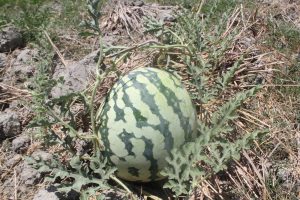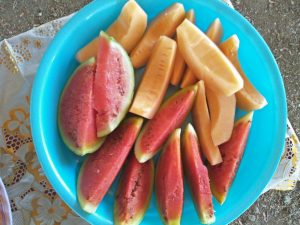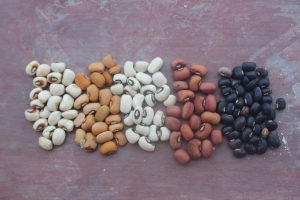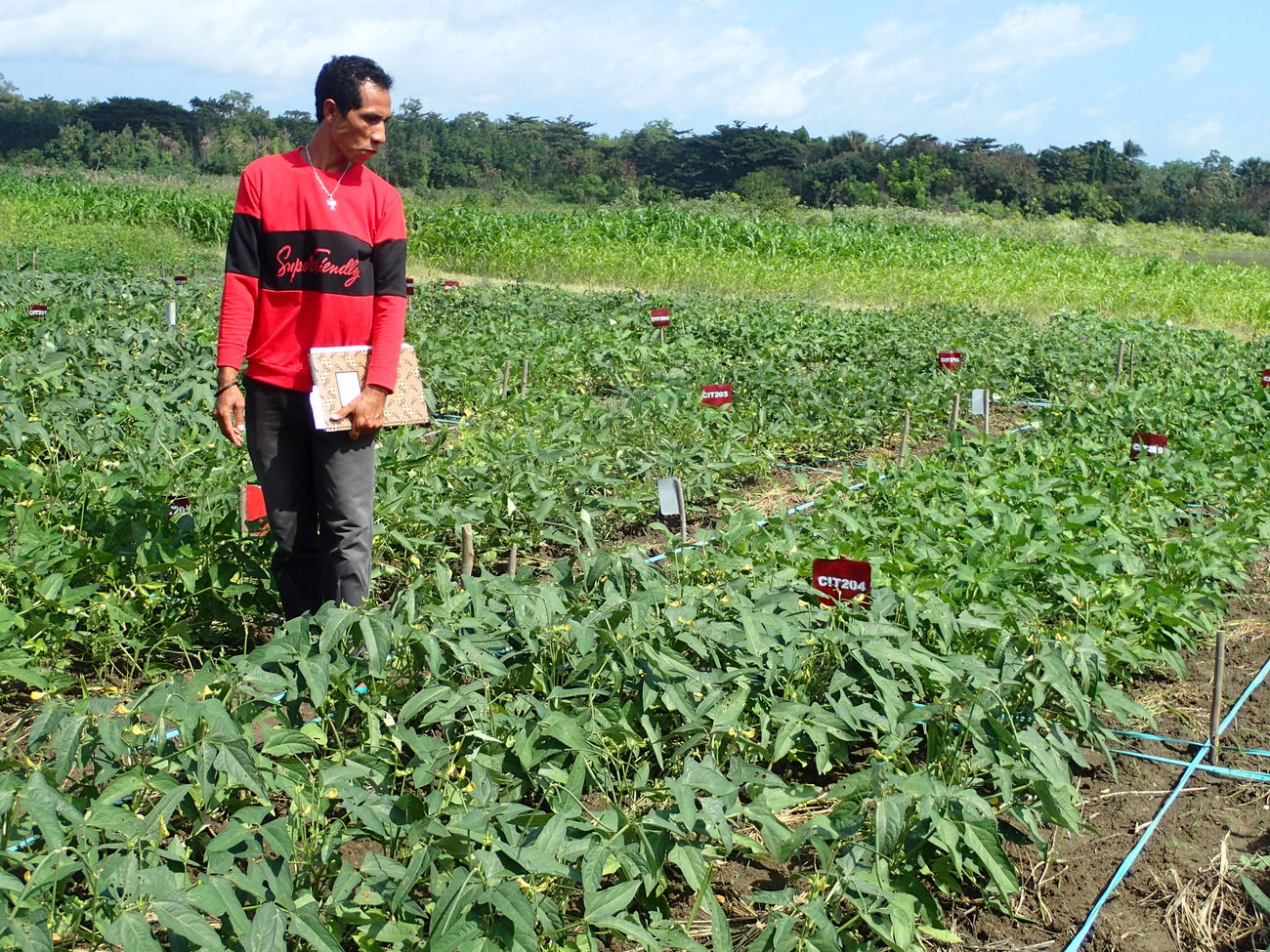Staff and students from the University of Timor Lorosa’e (UNTL) last week harvested horticulture crops planted at the university’s research site in Vemasse, Baucau municipality in another successful demonstration of the potential of the experimental research site.
The third group to conduct on-farm experiments at the site, 13 students from UNTL’s agronomy department harvested crops including watermelon, rockmelon, tomatoes and eggplants, which were grown as experiments into the effect of different doses of organic and inorganic fertilisers.
Despite the very hard and infertile soils, and hot conditions, students produced outstanding results by using much on the soil surface and adding a mixture of rice hull biochar and superphsphate to the soil.
This was the first time that successful rockmelon and watermelon crops have been produced in Vemasse.
Established in December 2017 under a collaborative partnership with AI-Com, the site at Vemasse was donated by local farmers due to the poor quality of its soil and a previous lack of access to water. But now, with an irrigation channel built by the Government of Timor-Leste with support from JICA and the enthusiasm of UNTL’s researchers, the potential of the Vemasse site is being unlocked.
“This land has significant potential,” said Acacio da Costa Gueterres, the head of UNTL’s agronomy department, at the harvest. “But land without water as our government has acknowledged it won’t be used to the maximum.”
“Because of this, we guide the students to do research to understand how it can be with minimal water and land that we can call impoverished.”
Nearly 40 student researchers have now completed experiments at the site since it launched 11 months ago, with previous groups testing fertilisers on staple crops and investigating the effect of planting different crops with and after a rice crop. Another group of students will continue experiments in early 2019.
New results from Vemasse show that with careful agronomy, reliable water and innovative thinking, rich harvests of diverse foods are possible, even in challenging conditions.
